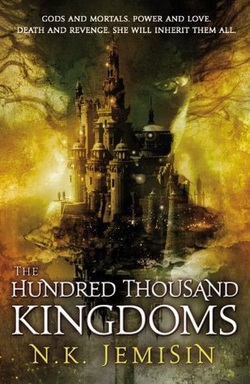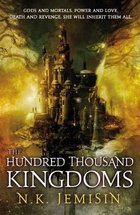
SPOILER WARNING
This post makes reference to events throughout N.K. Jemisin's The Hundred Thousand Kingdoms. If you haven't read it yet (and plan to), I recommend skipping this!
(For my spoiler-free review of the book, click here.)
Jemisin is clearly trying very hard to write a story with a feminist angle to it--the world is imbalanced largely due to the death of the only goddess; Nahadoth, our love interest, was a gender-fluid deity; most of the major players are female; Yeine comes from a matriarchal tribe of warrior-women—but in none of these cases does she take the story quite far enough. In falling short, she actually draws attention to these flaws, causing great irritation in those of us who care about this sort of thing.
This post makes reference to events throughout N.K. Jemisin's The Hundred Thousand Kingdoms. If you haven't read it yet (and plan to), I recommend skipping this!
(For my spoiler-free review of the book, click here.)
Jemisin is clearly trying very hard to write a story with a feminist angle to it--the world is imbalanced largely due to the death of the only goddess; Nahadoth, our love interest, was a gender-fluid deity; most of the major players are female; Yeine comes from a matriarchal tribe of warrior-women—but in none of these cases does she take the story quite far enough. In falling short, she actually draws attention to these flaws, causing great irritation in those of us who care about this sort of thing.

 RSS Feed
RSS Feed





